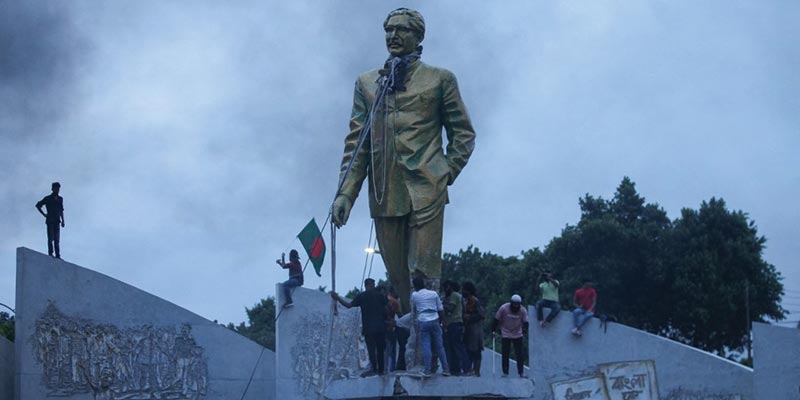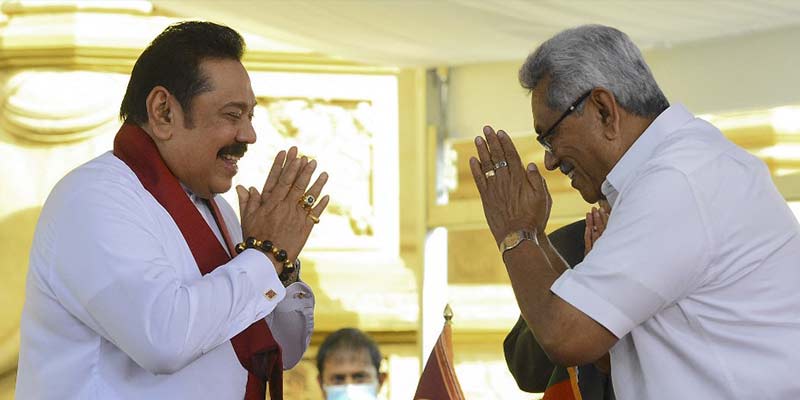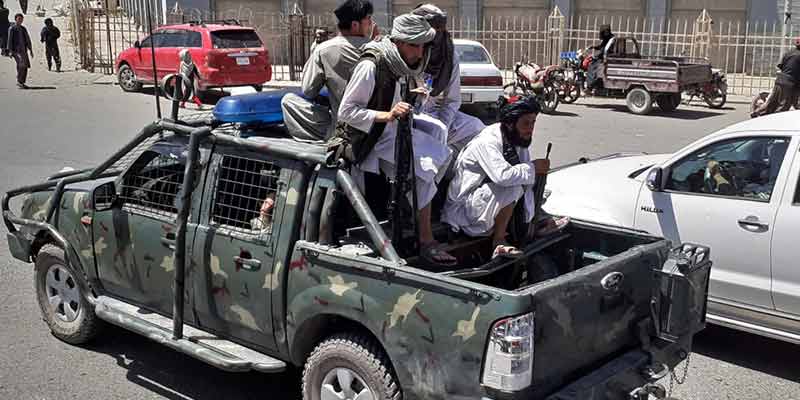- World
- Aug 07
- Kevin Savio Antony
Recent political turmoil in South Asia: A comparative analysis
On August 5, 2024, Bangladesh Prime Minister Sheikh Hasina left the country amid growing chaos and extensive protests against her administration. The unrest had been building for weeks, leading to a dramatic and turbulent exit for the Prime Minister.
This turmoil in Bangladesh echoes the events of Sri Lanka in 2022. During a severe economic crisis, widespread public protests in Colombo led to the departure of President Gotabaya Rajapaksa and Prime Minister Mahinda Rajapaksa from the island nation.
A year earlier, in August 2021, Afghanistan saw President Ashraf Ghani flee the country as the Taliban swiftly took control. These instances illustrate a pattern of political upheaval in South Asia, driven by economic crises and public discontent.
1) Bangladesh
• Sheikh Hasina, the 76-year-old daughter of Bangladesh founder Sheikh Mujibur Rahman, had been ruling the nation since 2009.
• She was elected for a record fourth consecutive term and fifth overall term in the 12th general election held in January, amid a boycott by the main opposition party Bangladesh Nationalist Party (BNP) of former premier Khaleda Zia and its allies.
• Rights groups have accused Hasina’s government of sidelining opposition parties and ruthlessly stamping out dissent during its 15-year tenure.
• In July, Bangladesh witnessed violent clashes between the police and mostly student protesters demanding an end to a controversial quota system that reserved 30 per cent of government jobs for relatives of veterans who fought in Bangladesh’s War of Independence in 1971.
• Critics argued the system is discriminatory and benefits supporters of PM Hasina, whose Awami League party led the independence movement, and they want it replaced with a merit-based system.
• The return of the quota, which had been scrapped in 2018, sparked anger among students.
• As demonstrations continued, there were eruptions of violence which led to death and the closure of public and private universities.
• The Supreme Court scaled back the quota system for government job applicants after it led to nationwide unrest and deadly clashes between police and protesters.
• The Supreme Court in its verdict ordered 93 per cent of the government jobs to be allocated on a merit-based system, leaving the remaining 7 per cent for relatives of veterans who fought in Bangladesh’s War of Independence in 1971 and other categories.
• The demonstrations have grown into a wider anti-government movement across the South Asian nation of about 170 million people.
• As public sentiment turned decisively against her, Hasina’s exit was marked by secrecy and incidents of looting at her residence in Dhaka. The army has announced that it will step in to assume control, but the future of the country remains uncertain. Hasina may seek political asylum in Europe.
2) Sri Lanka
• In 2022, Sri Lanka faced a severe economic crisis, driven by years of economic mismanagement.
• This crisis led to a foreign currency shortage, making it challenging for the government to import essential items like oil. The scarcity of goods caused a sharp rise in prices and frequent electricity cuts.
• Amidst these hardships, the Aragalaya — meaning “struggle” in Sinhalese — emerged as a largely leaderless anti-government movement. The protests intensified, with demonstrators breaking into the Presidential residence, swimming in the pool, and taking the President’s belongings.
• The political turmoil forced President Gotabaya Rajapaksa and Prime Minister Mahinda Rajapaksa to confront widespread calls for resignation.
• President Gotabaya Rajapaksa initially fled to the Maldives and then to Singapore, where he resigned. He later stayed in Thailand before returning to Sri Lanka about two months later.
• In response to the crisis, former Prime Minister Ranil Wickremesinghe assumed the role of acting President in 2022 and was later elected by Parliament. Under his leadership, Sri Lanka has sought financial assistance through loan deals with the International Monetary Fund (IMF) and countries like India and China.
• Presidential elections are scheduled for September this year.
• In 2023, Wickremesinghe’s office addressed the looting of valuable artifacts and archaeological items from the President’s residence, including historical coats of arms.
• An amnesty scheme was announced to encourage the return of these items.
3) Afghanistan
• Ever since the Soviet invasion of Afghanistan in 1979, the US priority was to get the Soviet Union to leave Afghanistan. After the Soviet Union was driven out with the support of the Mujahideen, which Washington had armed and financed, Washington paid no attention to Afghanistan until the attacks of 9/11. What was meant to be a short military action dragged on for 20 years.
• Despite years of efforts to establish democratic institutions and promote economic development, the Afghan government struggled to achieve lasting stability.
• The Taliban, meanwhile, had regrouped and maintained its fundamentalist ideology.
• As the Taliban’s capture of Kabul neared completion, distressing footage emerged of citizens desperately trying to escape the country.
• Many rushed past barricades at the capital’s airport, with some even clinging to aircraft wings and tails, tragically falling to their deaths.
• The prospect of returning to Taliban rule, reminiscent of their previous tenure from 1996 to 2001, was perceived as a significant setback for Afghanistan.
• President Ashraf Ghani also fled the country during this critical period. Images surfaced of Taliban fighters inside the presidential palace, armed and in control.
• Ghani faced significant criticism for his departure but later claimed that he left due to an imminent threat to his life.
• The UAE Ministry of Foreign Affairs and International Cooperation confirmed that Ghani and his family were granted entry on humanitarian grounds.
(The author is a trainer for Civil Services aspirants.)



